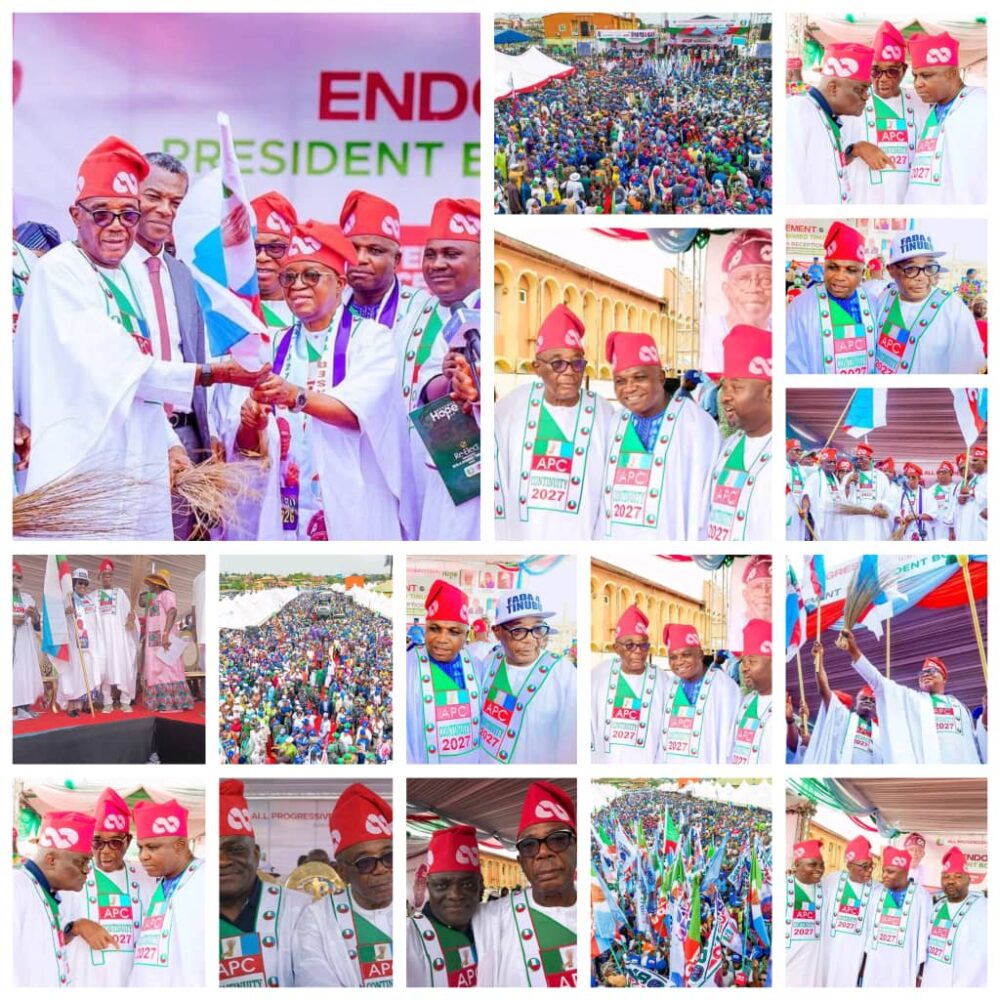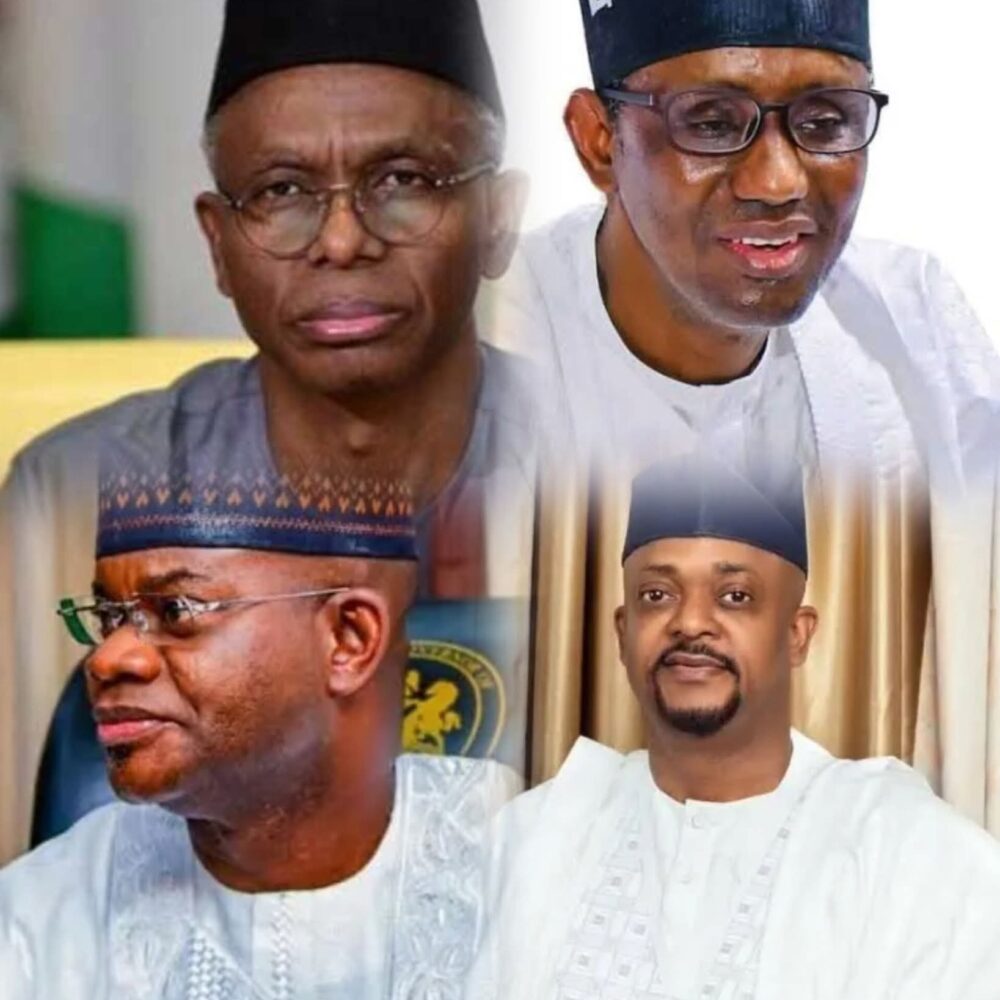Goodluck Ebele Azikiwe Jonathan GCFR, GCON is a politician in the Nigerian political system and the Former President o. He served as the President of the Federal Republic of Nigeria in a one-tenure administration from 2010 to 2015. He ran for a second tenure in the 2015 election but lost the election to General Muhammadu Buhari. He bowed gracefully to the defeat which was fascinating to everyone as no president in time past had ever admitted defeat in a peaceful manner.
In a press interview on Friday after his office was stormed by protesters compelling him to declare his interest in contesting for presidency in the upcoming election, Goodluck expressed his non-intention to run for the 2023 presidential election.
Following the protest, in his words he said, “I cannot declare because some processes are still ongoing.”
“Yes you are calling me to come and declare for the next election, I cannot tell I’m declaring. The political process is ongoing just watch out. The key role you must play is that Nigeria must get somebody that will carry young people along.”
He further encouraged youths to show interest in politics, leveraging on the “Not too young to run act” to ensure they participate in the electoral process actively.
The Goodluck Jonathan administration had good fortunes that makes Nigerians still believe he can repair the damage the country has been undergoing since the management of the present administration. It was in his administration, the Abuja – Kaduna rail route was constructed that has been beneficial to Nigerians traveling en route Kaduna as the Abuja- Kaduna road became insecure and fearful to thread for fear of bandits. Not until the recent attack of the Abuja-Kaduna train by bandits where there were casualties. Also, the Abuja-Kaduna train travels have stopped functioning because the train and its rail were destroyed. This method of transportation was really helpful as it was less expensive to board.
In 2015, about 760,000 jobs were created in the rice industry when the disbursement of N26 Billion was approved for the Dry season fadama farming scheme which was launched in 2012. Nigeria’s economy had an increase in Gross Domestic Product (GDP) 2014 when N320 Billion was realized from the local rice production. There were barely any complaints of scarcity of food or increase in price. In 2014, 50kg bag of rice was sold for N10,000 against the price for the same 50kg bag of rice ranging from N23,000 to N25,000 with the fear of consuming chemicalized grain as a result of inadequate storage facilities.
In Kebbi State, President Goodluck Jonathan ordered the building of a 100-tonne grain granary to eradicate food insecurity. In 2020, under a new administration, about N10.4 Billion was lost due to the non-release of 19 granary complexes franchised in 2019. The Great Green Wall Project in Nigeria was launched with the aim to stop desertification in 11 northern states, including Adamawa, Borno, Bauchi, Gombe, Kano, Katsina, Kebbi, Jigawa, Sokoto, Yobe, and Zamfara. As a Regional Afforestation Project, the Great Green Wall was envisioned as a 15-kilometer-wide and 7,775 – kilometer – long strip of trees and bushes stretching from Senegal in the west to Djibouti in the Horn of Africa in the east.
The cotton industry in Gusau Zamfara state was not left out in the transformation as it was revived with 15 ginneries that could hold 2000 tons of cotton were built to keep the industry moving and productive.
Worthy to note, the National Space Research and Development Agency (NASRDA) produced an indigenous Synthetic Aperture Radar Satellite that helps in securing, mapping out substantial mineral deposits, and monitoring the Niger Delta’s coastline areas.
The Goodluck Jonathan administration was active in making the economy work and it had a positive impact on the lives of the citizens. Looking back at health, records of zero-case of polio disease across northern states especially in Kano state where one can say it was a total eradication of the disease. In October 2012, the Saving One Million Lives (SOML) initiative was launched by Former Goodluck Jonathan strengthening health services as a broad-based investment initiative with six separate health pillars – immunization, malaria control, nutrition, prevention of HIV transmission from mother to child, distribution of necessary medicines to treat common childhood illnesses, and improvement of MCH delivery platforms. Presently, the mortality rate in hospitals has rapidly increased because hospitals and medical centers are inadequately equipped. The lives of Nigerians are at stake in the case of an emergency as hospitals and medical centers are not even run-to solutions.
By deploying technology to track the transportation of petroleum around Nigeria, President Jonathan’s Operation Aquila has helped minimize PMS subsidy theft by up to 20 million gallons per day. The price of fuel was also reduced from N97 per liter to N87 per liter in 2015 against the present price of N167.5 by market data.
Talking about electricity, there has been consistent nationwide grid collapse so far in 2022 which has caused nationwide blackouts that spurred a hike in fuel price. Businesses and industries are affected by the ever increasing price of fuel as electricity is not provided adequately yet there has been an increase in tariff from N12.87 per kWh to N23.592 per kWh for Households and N38.530 kWh for businesses.
Obviously, the outrageous cost of having a life presently in Nigeria is draining the citizens most especially financially that if there is not a better administration, there is no hope for the future generation.
Nigerians are expecting him to make up his mind to contest.
Majority of the citizens are supportive of him and enthusiastic to vote for him as a presidential candidate. The present condition of the country has made the people appreciate the efforts of Goodluck Jonathan when in power.





